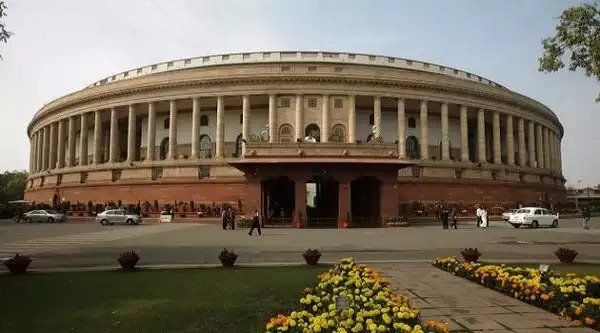Political Science NEP syllabus
Applicable from academic year 2024-25, progressively i.e. In 2024-25 this syllabus will be applicable to first year only. In 2025-26 it will be applicable to second year and in 2026-27 to third year. First batch with a three year degree will out in April-May-June 2027
अनुक्रमणिका
NEP 2020 syllabus
FYBA – Semester 1- Political Science
Major 1 – 4 credits
UG Certificate in Politics
Syllabus w.e.f. 2024-25 progressively – semester pattern
Eligibility – HSC or equivalent academic level 41
Examination and passing standard
Scheme of examination – 40% internal 60% external – individual passing. Standard of passing 40%. That means you should get minimum 16 out of 40 in internal assessment and 24 out of 60 in external examinations.
The syllabus for semester 1 & 2 will promote among students a basic understanding of important themes such as preamble, constitutional rights, directive principles. This will make the students enlightened students. It will provide basic knowledge of Indian democracy, social dynamics of Indian politics, promote awareness and strengthen national unity and security.
Objectives
- To introduce students to the Indian constitution
- To have a basic understanding of Indian democracy and it’s functioning
- To create awareness among students about the relationship between Indian politics and social factors that shape the political system.
Programme : B. A.
Programme objectives (PO)
- To provide students at the UG level a comprehensive understanding of the discipline.
- To make students understand fundamental concepts, theories, perspectives, moral discourses in the discipline.
- To expose students to interdisciplinary knowledge.
- To introduce students to diverse sub-fields in the discipline and its application to develop employment opportunity and skills among students.
- To enhance the all round development of the students.
Programme Outcome
- Demonstrate understanding and application of knowledge in the domain of Indian polity and its sub-fields.
- Develop interdisciplinary knowledge by focusing inter-linkages between various political, social, economic issues.
- Effectively and ethically use concepts, vocabularies and methods to make meaningful contribution to academics.
- Judge future career prospects in the field.
- Demonstrate values of enlightened citizenship.
Major Course – The constitutional framework of Indian polity2
4 credits 60 lectures BA Politics Semester I Paper I
Course objectives
- To introduce students to the basic features of the Indian Constitution.
- To introduce students to the organs of the union government.
- To make the students learn the nuances of federal structure.
Course outcomes
- Learners will be able to understand the basic framework of the Indian Constitution.
- Learners will be able to explain and discuss basic structure and functions of government organs at union level.
- Learners will be able to classify various types of fundamental rights and directive principles and grasp their importance in Indian context
- Learners will be able to analyse the nature of federal structure as adopted by the Constitution and interpret the progress of federation since then.
Course content
Unit 1 – Introduction to the constitution (15 lectures)
- The constituent assembly and the basic features of the constitution
- Preamble and philosophy of the Indian constitution
- Amendment procedure and basic structure doctrine
Unit 2 – Fundamental rights and directive principles (15 lectures)
- Fundamental rights
- Directive principles of state policy
- Fundamental duties
Unit 3 – Legislature, Executive and Judiciary (15 lectures)
- Parliament of India
- President and Prime Minister
- Supreme courts and High courts
Unit 4 – Federal structure and decentralisation (15 lectures)
- Constitutional provisions – Legislative, administrative and financial
- Changing nature and issues in the centre – state relations
- Panchayati raj and municipal governments
Vocational Skill Course Semester 1 Paper 1
Introduction to Psephology – Credits 2
Course objectives
- To introduce students to election process
- To acquaint students with basics of Psephology
- To acquaint students with tools and techniques of Psephology
Course outcomes
- State significance of elections in democracy
- Assess tools and techniques of Psephology
- Demonstrate skills of political analyst, political survey
Course content
Unit 1 – Electoral process in India
- Role of free and fair elections in democracy
- Election commission of India
Unit 2 – Psephology
- Growth and development
- Exit poll, opinion poll, political surveys
Unit 3 – Tools and techniques
- Sampling techniques
- Preparing a questionnaire
- Voting behaviour studies
Reading List:
1. Ahuja, M. L.: Electoral Politics and General Elections in India 1952-1998, Mittal Publications, Delhi, 1998.
2. Alam, Javeed: Who wants Democracy, Orient Longman, Hyderabad, 2004.
3. Calmon, Leslie. J.: Toward Empowerment of Woman and Politics in India, Westview Press, Boulder, 1992.
4. Dikshit, R. D. (Ed): Geography of Elections, The Indian Context, Rawat Publications, New Delhi, 1995.
5. Election Commission of India: Statistical reports on General Elections, India Year Books.
6. Ellhu, Katz and Yael, Warshel (Ed): Election Studies: What’s their use?, Westview Press, Boulder, 2000.
7. Kordo, N.: Election studies in India,
8. Kothari, Rajni: Politics &The People: In search of a Humane India, Vol. I & II, Ajanta Publications, New Delhi, 1990
- Krishnamurthy, T. S.: Miracle of Democracy: India’s Amazing Journey, Harper
Collins, New Delhi, 2008. - Kumar, Venkatesh B.: Electoral Reform in India – Current Discourses,
Rawat Publications, New Delhi, 2009. - Limaye, Madhu: Janata Party Experiment, B.R.Publishing, Delhi, 1994.
Skill Enhancement Course
Syllabus B.A. Politics (Sem.- I)
Title: Democratic Awareness Through Legal Literacy (Credits:02)
Course Content: Unit Syllabus Description Lectures
Unit 1 Introduction
1.1 Democratic Awareness- Meaning and Significance
1.2 Legal Literacy- Meaning, Significance and Classification of Law
Unit 2 Indian Judicial System and Police
2.1 Structure of Indian Judiciary- Supreme Court, Subordinate and Special Courts
2.2 Role of the Police in Administration of Law
Unit 3 Legal Services and Legal Aids
3.1 Legal Services Authorities Act, Right to Legal Aid
3.2 Public Interest Litigation, Lokadalat, Lokayukta
Activities:
- Moot Court,
- Visit to Nearest Police Station,
- visit to the Court,
- PPT related to Case Study
- Presentations on selected Law,
- Survey,
- Visit to Lokadalat
QUESTION PAPER PATTERN (External and Internal)
Politics Major Paper (04 Credits)
Sem I Constitutional Framework of India
Following is the paper pattern
(A) External / Semester End Examination
Marks: 60 Time:2 Hours
Six questions of 15 marks each.( Essay type)
Students have to attempt any four.
Equitable distribution to each module.
Question six , short notes, any three out of four.(5 marks each)
(B) Continuous Internal Evaluation.
Marks: 40
1 Assignments/Projects 15 marks
2 Classroom Presentations 05 marks
3 Essay Submission/ Book review 10 marks
4 Participation in Departmental Activities / Field Visit Report 10 marks
Semester I Introduction to Psephology
Following is the paper pattern
(A) External / Semester End Examination
Marks: 30 Time:1 Hour
Three questions of 15 marks each
Question number 3, short notes, any three out of four.( 5 marks each).
Students have to attempt any two questions.
Equitable distribution to each module.
(B) Continuous Internal Evaluation.
Marks: 20
1 Classroom Presentations/ Assignments/Quiz/ Internal Test on any topic from the syllabus 10 marks
2 Essay Submission/ Book review/ Project Field Visit Report / Educational Activity Report 10 marks
References
- 5+3+3+4 formula – 1) 3 to 8 years foundational stage of 5 years – 3 years of pre-school or Anganwadi and two years of primary school – class 1 and 2. 2) 8 to 11 years preparatory stage of three years – Class 3 to 5. 3) 11 to 14 years middle stage – class 6 to 8 4) 14 to 18 years – Secondary stage – Class 9 to 12 ↩︎
- a society or state considered as a political unit ↩︎
![]()


2 Comments
Comments are closed.